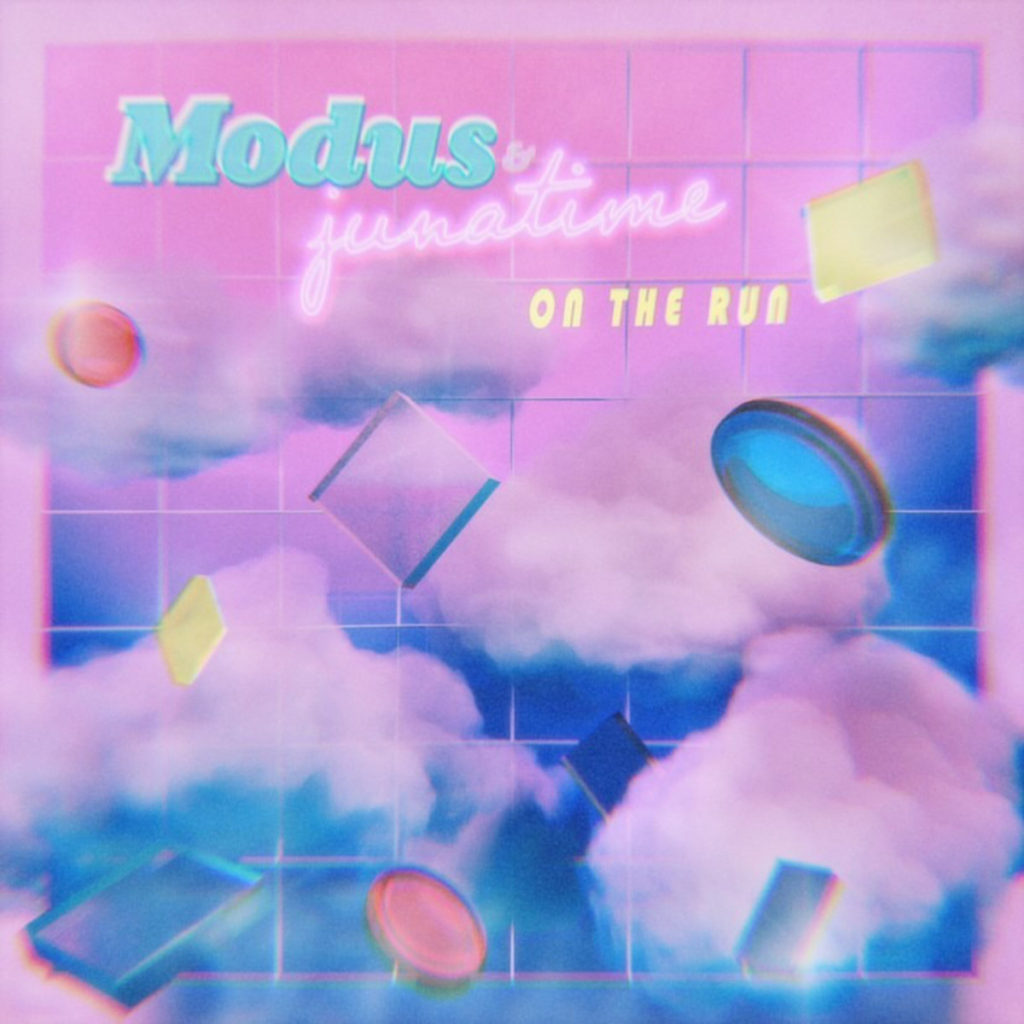FORTHE’s Bandcamp Picks: April 2021
10 minute readFORTHE’s Bandcamp Picks is a regular series highlighting brand new music releases from Long Beach musicians, producers, and bands. This month, our roundup coincides with Bandcamp Friday, which began last spring as part of Bandcamp’s monthly initiative to direct more proceeds to artists in light of the pandemic by waiving its usual 15% service fee for all music purchased that day. That means that today, artists will get to keep 100% of proceeds from music sales, minus a small PayPal or card processing fee. Bandcamp Friday will continue on the first Friday of every month until this May.
Below are our staff’s picks for this month. By purchasing music from their Bandcamp, you can support these local artists directly.
Shiro – No Evil

Long Beach synth pop duo Shiro tackles the topic of mental health in their latest single “No Evil,” an electronic revamp of a song off their 2018 self-titled EP, which was originally recorded with a full band. As the first track to be fully produced by the duo, Shiro strikes a delicate balance between the emotive and the technical elements in this new version. Steven Spillane’s production of stuttering hi-hats and syncopated kicks anchor Hannah Park’s feathery vocals as they intermingle with orchestral pads and soft, sustained synths. Her lyrics capture a back-and-forth conversation with sabotaging voices in her head that coax her to stay numb, to stay in bed as she grasps to remember herself. It is an intimate yet relatable dialogue, one that many of us have endured. All proceeds from this single will be donated to Asian Mental Health Collective.
-EK
Dirty Merlin vs. Vanity Pressure System

GRN+GLD label dad Dirty Merlin’s latest release is a six-track thumper in collaboration with New York’s Vanity Pressure System. A sequel to his 15th & Cherry EP released early last year with LA-based label LA909, Vanity Pressure System offers a more refined sonic journey rooted in high-octane house and techno. It was produced using his signature EMX sequencer and MV8000 sampler to distill soundbites from an old record collection.
A commentary on societal pressures and cultural programming that shapes and clouds one’s self-image, the opening track “Intro (Weight of the World)” sets a brooding tone with faraway distorted vocals that give the effect of looking into a funhouse mirror. “Awaken (You Laid Your Eyes On Me),” an introspective house track featuring the creamy falsetto of vocalist Ahnet, gently brings us into a steady four-on-the-floor that grows in nerve and tempo as the EP progresses. “Tell Me How,” featuring Long Beach rapper .rael_one, and the closing track “Atmospheric Pressure (EMX303 Rave)” are standouts as high-energy dance bangers, steeped in Dirty Merlin’s classic grime and mischievous ways.
-EK
Modus & Junatime – On the Run

Even though she was in the midst of an international pandemic and a lockdown, “On the Run” lyricist and singer Heather Jean Sommerhauser AKA Junatime continued to feel the pressure to push her music career further. “I was shaming myself pretty hard when I didn’t have a productive day,” she said.
I know I gotta pick up the pace
Feels like I’m running in place
Catching up, at least to say I tried
Tomisin Oluwole
Coquette
Acrylic on canvas
18 x 24 inches
Click here to check out our interview with Tomisin Oluwole, a a literary and visual artist based in Long Beach.

Instead of gunking up our site with ads, we use this space to display and promote the work of local artists.
Her new song is a collaboration with dreamy synth pop duo Modus and reflects on feeling anxious about staying busy when all the gigs stopped and recording at the studio was no longer possible.
Sommerhauser and Modus’ Gustavo Miranda, after discovering a shared love for synthesizers and 80s music, had plans to jam together and do live shows in support of a forthcoming Junatime album. Of course, that was all put on hold due to COVID-19. Miranda (keyboardist) and his musical partner in Modus, guitarist Jon-Michael Lopez, who he has been playing with for over a decade, had some “extra tracks they didn’t know what to do with,” and sent them to Sommerhauser to see if she was inspired to collaborate.
A track simply labeled “pop song” drew her attention first, “it sounded fun, like Whitney Houston’s ‘I Wanna Dance with Somebody.’” Both Junatime and Modus normally gravitate toward darker tones and minor chords while still keeping you on the dance floor (Sommerhauser compares Modus to Depeche Mode), whereas “On the Run” is three major power chords or what she considers “ultra pop.” Though the other tracks—one was labeled for example “E minor”—inspired ideas for melodies and lyrics very naturally and quickly, “pop song” was a challenge.
Sommerhauser spent three months working on the track before sending it back to Modus. “I am a brighter vocalist coming in with this song and it’s totally different than their sound, trying to match by not sticking out too much but [she said], ‘Okay I really need to just try to be me here, I can’t be them, that wouldn’t be authentic.’”
The end result is an upbeat song with an infectious chorus that will have you running to the dance floor to shake your anxieties loose. This is Modus & Junatime’s first release but an EP is forthcoming.
-EMF
Porcelain Moth – in my bed of a room

Opening with whispery lo-fi vocals reflecting on the view outside the bedroom window, vocalist and producer Emily Wasilewski AKA Porcelain Moth sings of “where it is warm, where it is decorated with crowds teasing the ground,” as you hear the voices of children in the background. But instead of being drawn to join, they withdraw further.
“in my bed of a room” is a song about “not going outside or letting people in and being trapped in the walls that have been created,” they say. Or in other words, as said in the closing line of the song, being so depressed you feel “stuck inside a labyrinth of paradise for the guarded heart.”
A “noxious gas of self doubt” expressed through an intensifying of the guitar and the introduction of drums ultimately drowns out the joyful noises outdoors, as the vocal changes into a stronger, more insistent message: that they are unable to get out of the room they have put themselves in.
Creating the song in their bedroom completely through GarageBand, the message from this multi-talented artist is one that may feel familiar to many of us trying to function during a time of great isolation.
-EMF


 editors@forthe.org
editors@forthe.org




